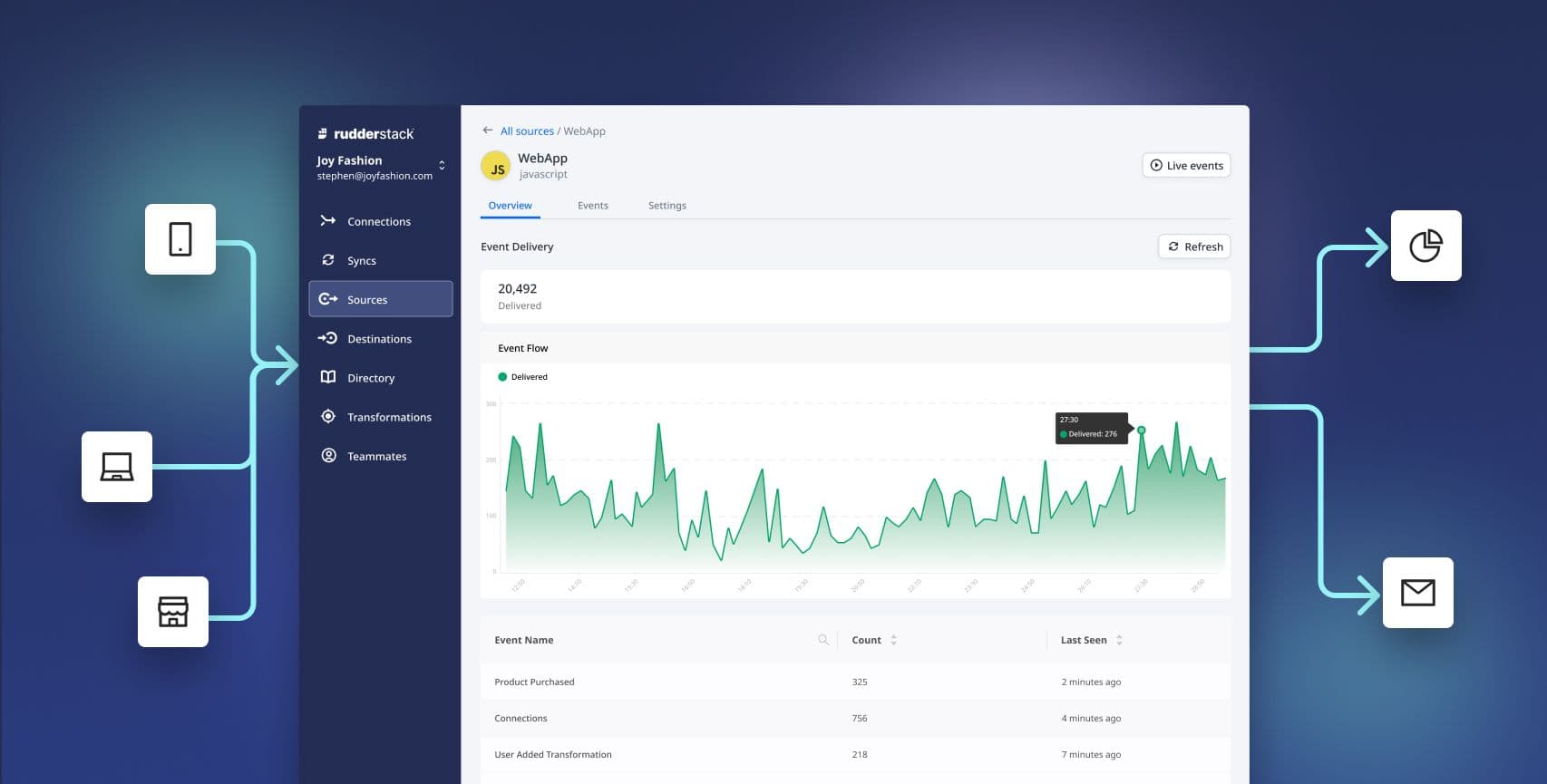Enabling the Customer Data Stack: RudderStack Series B Funding

Today, I’m thrilled to announce RudderStack’s $56 million Series B funding led by Insight Ventures with continued support from Kleiner Perkins and S28 Capital. This brings our total funding to $82 million. Our Series B is a big step forward in helping our customers build the best data stacks possible.

In 2019, I co-founded RudderStack with the goal to help data engineers build the infrastructure required to help their businesses understand their users and serve their needs. I was inspired by my experience at my previous company where I spent a year building customer data pipelines. In the process, I learned about the data management challenges that engineering teams face as they strive to collect and process customer data at enterprise scale. This funding round is a testament to the progress we have made in addressing these challenges for our customers.
With this funding round, we intend to accelerate investments in our product to enable engineers everywhere to build future-proof customer data infrastructure.
I am proud of what this team has accomplished in just a few short years and am looking forward to what the future holds.
Read the TechCrunch article from Frederic Lardinois featuring our Series B to learn more.
Published:
February 2, 2022







